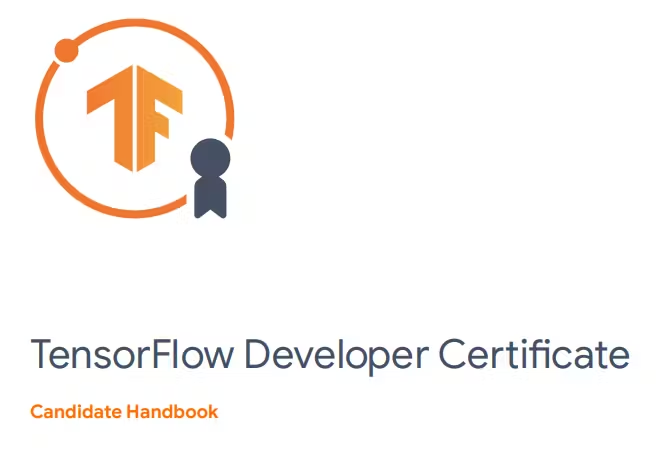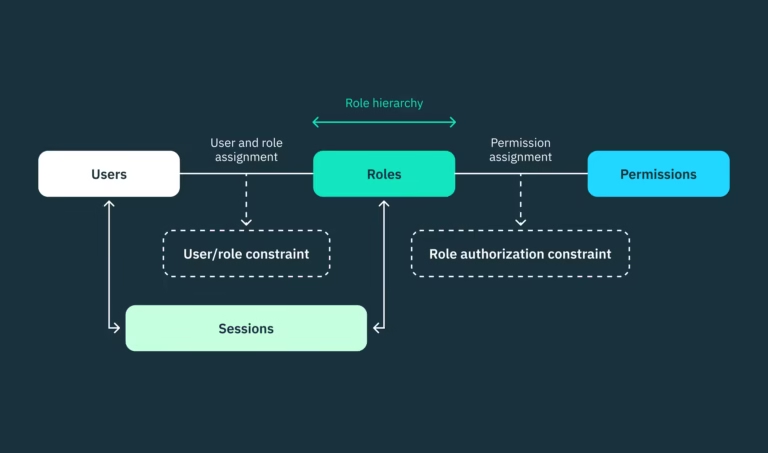
Introduction to Certifications in AI and Machine Learning
Highest-Paying IT Certifications: In today’s rapidly evolving technological landscape, the demand for skilled professionals in Artificial Intelligence (AI) and Machine Learning (ML) is experiencing unprecedented growth. Organizations across various sectors are increasingly seeking experts who can leverage AI and ML to glean insights from vast amounts of data, automate processes, and enhance decision-making capabilities. This rising demand underscores the importance of acquiring specialized knowledge and skills, which makes certifications in these fields particularly significant.
Certifications serve as a formal recognition of an individual’s expertise and commitment to continuous professional development. They provide a structured framework for learners to grasp essential concepts and methodologies within AI and ML. By earning a certification, professionals can validate their skills achieved through various training programs, coursework, or practical experience. This validation not only boosts an individual’s confidence but also enhances their credibility in the eyes of potential employers.
Moreover, obtaining a certification in AI or ML can significantly bolster career prospects. As companies prioritize innovative solutions and data-driven strategies, they are increasingly willing to invest in hiring certified professionals. Such credentials often position candidates as more qualified than those without them, enabling them to stand out in a competitive job market. Furthermore, professionals equipped with relevant certifications may benefit from higher salary packages, reflecting the value that organizations place on certified expertise.
In summary, certifications in Artificial Intelligence and Machine Learning offer individuals a pathway to validate their skills, enhance their employability, and position themselves for financial advancement. As the industry continues to evolve, so will the opportunities for certified professionals to thrive in this dynamic field.
Understanding the Landscape of AI and ML Certifications
The field of artificial intelligence (AI) and machine learning (ML) has rapidly evolved, prompting the emergence of various certifications that cater to different skill levels. These certifications are crucial for individuals looking to establish their credentials and enhance their career prospects in this competitive domain. They are generally categorized into three levels: foundational, intermediate, and advanced.
Foundational certifications serve as an entry point for those new to AI and ML. They typically cover basic concepts and provide an overview of methodologies and technologies used in the field. These foundational programs are often aligned with popular programming languages and tools, paving the way for learners to gain exposure to essential skills. Organizations such as Microsoft and IBM offer foundational courses that are well-recognized in the industry, ensuring that newcomers can solidify their understanding of core principles.
Intermediate certifications build upon the foundational knowledge, delving deeper into specific technologies, frameworks, and algorithms. Professionals who hold these certifications are generally expected to have some hands-on experience and can effectively contribute to projects in real-world scenarios. Institutions like Google AI and Coursera offer such certifications, enabling candidates to enhance their technical expertise and practical skills. This level of certification is advantageous for individuals aiming for roles involving data analysis, predictive modeling, and AI application development.
Advanced certifications are tailored for seasoned professionals seeking to deepen their expertise or specialize in niche areas within AI and ML. These programs often encompass complex topics such as deep learning, natural language processing, and advanced machine learning models. Accreditation bodies such as the International Association for Statistical Computing typically recognize these advanced credentials, underscoring their significance in the job market. By obtaining advanced certifications, individuals can position themselves as experts and enhance their potential for high-paying roles within the industry.
Google Cloud Professional Machine Learning Engineer
The Google Cloud Professional Machine Learning Engineer certification is designed to equip professionals with the expertise needed to design and implement machine learning (ML) models on Google Cloud Platform. This certification focuses on various critical objectives that encompass the entire machine learning lifecycle, including data preparation, model training, evaluation, deployment, and monitoring. Candidates will be tested on their ability to leverage Google Cloud tools and resources effectively.
To succeed in this certification exam, candidates are expected to possess a deep understanding of machine learning concepts and techniques. This includes knowledge of supervised and unsupervised learning, data engineering, and the use of frameworks like TensorFlow. Moreover, the certification requires familiarity with Google Cloud services such as BigQuery, Cloud Storage, and AI Platform, which are essential in managing and scaling ML models. Candidates should ideally have hands-on experience in a professional environment, as this role often includes optimizing machine learning models to enhance performance and reliability.
Before pursuing this certification, it is recommended that individuals have a strong foundation in cloud computing and familiarity with programming languages commonly used in machine learning, such as Python. Google also recommends that candidates possess at least three years of industry experience in machine learning and data analytics, which ensures that they can deal with complex challenges effectively.
Key Skills Covered:
- Designing machine learning models.
- Creating and deploying ML pipelines.
- Optimizing model performance.
- Ensuring scalability and reliability of ML systems.
Why It’s High-Paying: Google’s certification is highly respected, and professionals who earn it are seen as capable of handling complex machine learning problems in enterprise environments. Employers know they can rely on Google-certified engineers to build models that perform efficiently at scale, making this certification one of the highest-paying in the field.

The earning potential for a Google Cloud Professional Machine Learning Engineer is substantial. According to various industry surveys, professionals holding this certification can expect to earn a salary that typically ranges from $120,000 to $200,000 annually based on experience and job location. Common job roles for individuals with this credential include machine learning engineer, data scientist, and AI consultant, showcasing the credential’s value in the rapidly evolving field of artificial intelligence and machine learning.
Microsoft Certified: Azure AI Engineer Associate
The Microsoft Certified: Azure AI Engineer Associate certification is an essential credential for professionals seeking to enhance their capabilities in building and managing AI solutions on the Azure platform. This certification validates the skills needed to design and implement AI solutions, emphasizing the integration of Azure Cognitive Services, Azure Machine Learning, and knowledge of data services. With an increasing shift towards cloud-based AI deployments, obtaining this certification positions professionals competitively in a rapidly evolving job market.
The exam content covers several critical areas, including analyzing solution requirements, implementing AI solutions, and integrating AI models into applications. Candidates must demonstrate proficiency in Azure AI services, machine learning principles, and data management. The certification exam usually comprises multiple-choice questions and practical scenarios, testing both theoretical understanding and applied skills. To effectively prepare for the exam, individuals can utilize various resources provided by Microsoft, such as online training courses, practice tests, and official documentation. Additionally, community forums and study groups can provide valuable insights and support during the preparation phase.
Key Skills Covered:
- Building AI solutions using Azure AI services.
- Implementing natural language processing, computer vision, and other AI models.
- Understanding the ethical implications of AI.
- Leveraging Azure Machine Learning services for model training and deployment.
Why It’s High-Paying: With Azure being one of the most popular cloud platforms, there’s a massive demand for AI engineers who can build and manage AI solutions using Azure tools. Microsoft’s certification not only validates your expertise but also opens doors to high-paying opportunities at companies heavily invested in cloud technologies.
Average Salary: Certified Azure AI Engineers typically earn between $120,000 to $170,000 annually, with potential bonuses depending on the scope of the projects they handle.

AWS Certified Machine Learning – Specialty
The AWS Certified Machine Learning – Specialty certification validates expertise in designing, implementing, deploying, and maintaining machine learning solutions on the Amazon Web Services (AWS) platform. It focuses on the fundamental aspects of machine learning and aims to assess both the development and operational skills necessary for professionals in this field. Candidates are evaluated on three primary knowledge areas: Data Engineering, Exploratory Data Analysis, and Machine Learning Modeling, as well as Automated ML and Deployment, along with Operations.
To adequately prepare for the AWS Certified Machine Learning – Specialty certification, candidates are recommended to have a sound understanding of machine learning concepts, frameworks, and methodologies. Prior experience in programming, especially Python and R, along with familiarity with big data tools and AWS services such as S3, SageMaker, and Glue is highly beneficial. AWS suggests having at least two years of practical experience in data science and machine learning, as well as a foundational knowledge of AWS services to maximize the candidate’s chances of success when attempting the certification exam.
Earning the AWS Certified Machine Learning – Specialty certification can significantly enhance one’s career prospects in the IT and tech industry. Certified professionals may find that their earning potential increases, as organizations actively seek individuals proficient in machine learning technologies to support their operational needs. According to various industry reports, individuals holding this certification can command salaries that surpass those of their non-certified peers, with some reports indicating an average salary increase of 20%. In this rapidly evolving landscape of artificial intelligence and machine learning, the AWS certification not only confirms one’s skill set but also enhances credibility among employers and peers alike.
Key Skills Covered:
- Designing ML solutions on AWS.
- Automating ML workflows and pipelines.
- Using AWS SageMaker for model training and deployment.
- Data engineering for machine learning.
Why It’s High-Paying: AWS is a leading cloud platform, and its Machine Learning Specialty certification proves your ability to implement ML solutions in a production environment. Companies leveraging AWS services for their AI projects are willing to pay top dollar for certified professionals who can optimize machine learning processes.
Average Salary: AWS Certified Machine Learning professionals can expect to earn between $130,000 to $180,000 annually.

IBM Data Science Professional Certificate
The IBM Data Science Professional Certificate is a highly regarded program specifically crafted for individuals seeking to advance their skills in data science, particularly in the realms of artificial intelligence (AI) and machine learning (ML). This certification serves as a foundational stepping stone for data professionals aiming to thrive in an increasingly data-driven world. Offered through platforms like Coursera, this comprehensive certification comprises nine courses designed to equip learners with a broad understanding of data science principles and practices.
The program begins by introducing essential concepts such as data analysis, visualization, and the use of programming languages, including Python, which is pivotal in both AI and ML applications. Students learn about data handling, data wrangling, and techniques for machine learning. Advanced topics within the curriculum also encompass neural networks, deep learning, and the integration of data science methodologies with AI frameworks. By covering such a wide array of subjects, the certification helps learners build a robust skill set that is applicable in various industries.
This certification is particularly beneficial for data analysts, data engineers, and aspiring data scientists who want to enhance their expertise and employ AI and ML techniques effectively. Additionally, professionals in related fields, such as business intelligence and statistical analysis, can gain significant advantages from this program. Employers recognize the IBM Data Science Professional Certificate as a testament to one’s commitment and knowledge in the data science field, making it a valuable asset to a candidate’s resume.
In conclusion, the IBM Data Science Professional Certificate not only enhances one’s understanding of data science but also opens doors to numerous career opportunities in the thriving sectors of artificial intelligence and machine learning.
Key Skills Covered:
- Deep learning techniques using TensorFlow and Keras.
- Neural network architectures and training.
- Machine learning with scikit-learn and other popular libraries.
- Building and deploying AI solutions on the IBM Cloud.
Why It’s High-Paying: IBM is a pioneer in AI technology, and their certification carries significant weight in the industry. Certified AI Engineers from IBM are recognized for their advanced technical expertise and ability to solve complex AI challenges, leading to higher salary packages.
Average Salary: Certified AI Engineers with IBM credentials can earn $125,000 to $175,000 annually, depending on the specific industry and job role.

NVIDIA Deep Learning AI Certification
The NVIDIA Deep Learning AI Certification serves as a testament to an individual’s expertise in deep learning technologies. This certification is designed to validate a candidate’s technical competencies in deploying and optimizing AI algorithms using NVIDIA’s technology stack. With the rapid growth of the artificial intelligence and machine learning fields, professionals equipped with this certification can significantly enhance their job prospects within various high-demand sectors.
The deep learning certification encompasses several technical skills. It focuses on neural network architectures that are essential for machine learning tasks. Candidates are evaluated on their ability to implement deep learning models using NVIDIA tools such as CUDA and TensorRT, as well as their proficiency in managing data pipelines and training workflows. These competencies are crucial in roles that require sophisticated AI applications, particularly in areas like computer vision, speech recognition, and natural language processing.
Industries that often seek professionals with the NVIDIA Deep Learning AI Certification range widely, including tech companies, healthcare, finance, and automotive sectors. In tech companies, for instance, roles in software development and data science are prevalent, while the healthcare industry increasingly relies on AI and machine learning for diagnostics and treatment planning. The ability to work with deep learning models is becoming an asset in finance as well, with applications in fraud detection and algorithmic trading.
As for compensation, certified professionals can command impressive salaries. According to recent industry reports, the average income for individuals with the NVIDIA Deep Learning AI Certification can reach upwards of $120,000 annually, depending on the specific role, experience, and geographical location. This certification, therefore, not only validates a high level of expertise but also opens doors to lucrative career opportunities in the booming fields of artificial intelligence and machine learning.
Key Skills Covered:
- Deep learning model optimization for GPU deployment.
- Training neural networks on large-scale datasets.
- Implementing AI solutions for computer vision, autonomous vehicles, and robotics.
Why It’s High-Paying: Nvidia is a leader in GPU-based computing, and their certifications are essential for professionals working on high-performance AI solutions. Certified individuals are highly valued in sectors that require advanced AI, such as autonomous systems, gaming, and robotics.
Average Salary: Certified professionals from Nvidia’s DLI can earn between $140,000 to $190,000 annually.

TensorFlow Developer Certificate
The TensorFlow Developer Certificate is an esteemed credential designed to validate an individual’s proficiency in using TensorFlow, which is a fundamental framework for developing machine learning and deep learning applications. Acknowledged globally, this certification demonstrates a candidate’s ability to create, train, and deploy machine learning models effectively.
To prepare for the TensorFlow Developer Certificate exam, candidates should rely on multiple resources, including online courses, hands-on projects, and the official TensorFlow documentation. It is advisable to gain a strong foundational understanding of machine learning concepts prior to attempting the certification. Many candidates also engage in practical exercises, as building and fine-tuning models is vital for real-world applications.
As for the exam requirements, candidates must take a single assessment consisting of multiple-choice and coding questions to evaluate their skills effectively. The examination can be conducted online, which allows for flexibility in scheduling. To ensure a comprehensive understanding, the exam covers several areas, such as data preprocessing, creating neural networks, and model evaluation, amongst others. Having knowledge in Python and familiarity with TensorFlow’s APIs are also prerequisites that play a significant role in successful completion.
Obtaining the TensorFlow Developer Certificate can substantially impact one’s career in the field of artificial intelligence and machine learning. As organizations increasingly adopt machine learning technologies, individuals certified in TensorFlow are often viewed as top contenders for lucrative positions. Furthermore, this credential not only enhances one’s resume but also serves as a demonstration of commitment to continuous learning and professional growth in the evolving landscape of AI and ML.
Key Skills Covered:
- Building and training neural networks using TensorFlow.
- Working with TensorFlow Extended (TFX) for production ML pipelines.
- Developing deep learning models for various applications, including computer vision and natural language processing.
Why It’s High-Paying: TensorFlow is a widely adopted framework for ML, especially in large-scale AI projects. Certified TensorFlow developers are in high demand for roles involving deep learning, computer vision, and other advanced AI solutions. Companies rely on TensorFlow-certified professionals to handle critical AI projects.
Average Salary: TensorFlow developers can earn between $120,000 to $170,000 annually, with significant earning potential in roles related to AI research and development.

Certified Artificial Intelligence (AI) Practitioner by CertNexus
The CertNexus Certified AI Practitioner (CAIP) certification provides a comprehensive foundation in AI concepts and applications. It is designed for individuals looking to understand and implement AI technologies across a wide range of use cases.
Key Skills Covered:
- Fundamentals of AI, including machine learning, deep learning, and natural language processing.
- Data preparation and feature engineering.
- Model evaluation and interpretation.
- AI ethics and governance.
Why It’s High-Paying: The CAIP certification is recognized for providing a holistic understanding of AI principles, enabling certified professionals to apply AI solutions in various domains. As AI becomes more integrated into business operations, organizations are willing to pay high salaries for certified practitioners who can lead AI-driven initiatives.
Average Salary: Professionals with the CertNexus CAIP certification earn between $110,000 to $160,000 annually.

Professional Certificate in Machine Learning and Artificial Intelligence (MIT)
MIT offers a professional certificate in Machine Learning and AI through its online programs. This certificate is tailored for professionals seeking advanced knowledge in AI technologies and their applications in real-world scenarios.
Key Skills Covered:
- Reinforcement learning, deep learning, and neural networks.
- Predictive analytics and decision-making.
- AI-driven innovation and ethical considerations.
- Applications of AI in industries such as finance, healthcare, and technology.
Why It’s High-Paying: An MIT certification is highly prestigious, and professionals with this credential are viewed as leaders in AI and ML. The certification equips individuals with cutting-edge knowledge, making them highly attractive to top-tier companies looking for advanced AI expertise.
Average Salary: MIT-certified AI professionals can command salaries ranging from $150,000 to $200,000, particularly in leadership or specialized AI roles.

Overview of Emerging Certifications in AI and ML
The landscape of artificial intelligence (AI) and machine learning (ML) is continuously evolving, prompting the emergence of new certifications that cater to the demands of a rapidly changing industry. Professionals keen on future-proofing their careers should stay informed about these certifications, as they can offer unique advantages and boost employability in a competitive job market.
Various organizations have begun to acknowledge the increasing significance of specialized knowledge in AI and ML, leading to the introduction of certifications that address specific niches. These new offerings often focus on advanced topics such as deep learning, reinforcement learning, and natural language processing. Such certifications not only validate the expertise of the candidates but also align with industry needs, making them an attractive option for professionals seeking to enhance their qualifications.
Moreover, the trend of online learning platforms has contributed to the proliferation of certifications. Reputable institutions are collaborating with these platforms to develop courses that equip learners with the practical skills required in AI and ML applications. This accessibility allows experienced professionals and newcomers alike to acquire new knowledge and remain competitive in a field characterized by its rapid technological advancements.
In addition, industry demand is shaping the future of certifications. Organizations are increasingly looking for certified individuals who possess not just theoretical knowledge but also hands-on experience in applying AI and ML concepts. As a result, certifications that include project-based assessments and real-world applications are gaining prominence, providing candidates with a deeper understanding of the technologies.
As this trend continues, prospective candidates should carefully evaluate new certification options and consider how they align with personal career goals. The integration of emerging technologies will likely fuel the development of these programs, making it essential for professionals to stay abreast of the certifications available to ensure they maintain a competitive edge in the field of AI and ML.
Conclusion: The Investment in Certifications
As the technology landscape continues to evolve, the importance of acquiring relevant certifications in artificial intelligence (AI) and machine learning (ML) cannot be overstated. Pursuing these qualifications is not just a matter of personal development; it has significant implications for career advancement and salary increments. In an industry as competitive as technology, distinguishing oneself through recognized certifications allows professionals to demonstrate their expertise and commitment to staying at the forefront of innovation.
The investment in certifications in AI and ML can lead to superior job prospects, enhancing one’s profile in a crowded job market. Many organizations are increasingly requiring specialized knowledge in these fields, thereby elevating the necessity of obtaining certifications. The right certification classes can equip individuals with essential skills and knowledge, empowering them to tackle real-world problems and contribute effectively to their organizations. The focus on becoming proficient in AI and ML applications will not only enhance an individual’s employability but can also lead to substantial salary growth over time.
Furthermore, certifications serve as a benchmark for skills and knowledge, allowing hiring managers to evaluate candidates quickly and accurately. The credibility that comes with these qualifications can significantly enhance one’s professional reputation, opening doors to advanced roles or leadership positions. Thus, professionals looking to align their career trajectories with the growth of AI and ML should carefully assess their career goals and consider pursuing certifications that resonate with their aspirations. Evaluating the best options tailored to their interests and professional objectives will ultimately pave the way for a more rewarding career in this dynamic field.







